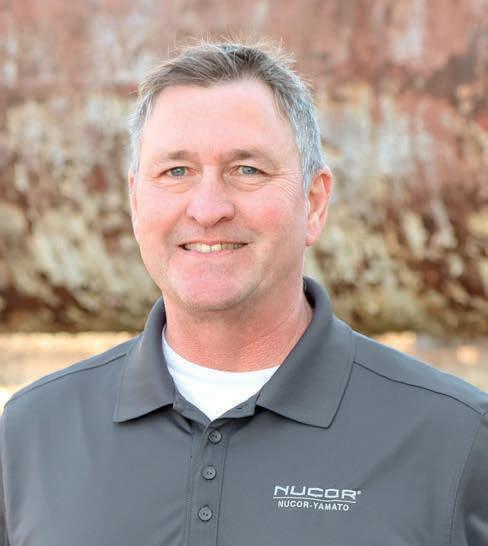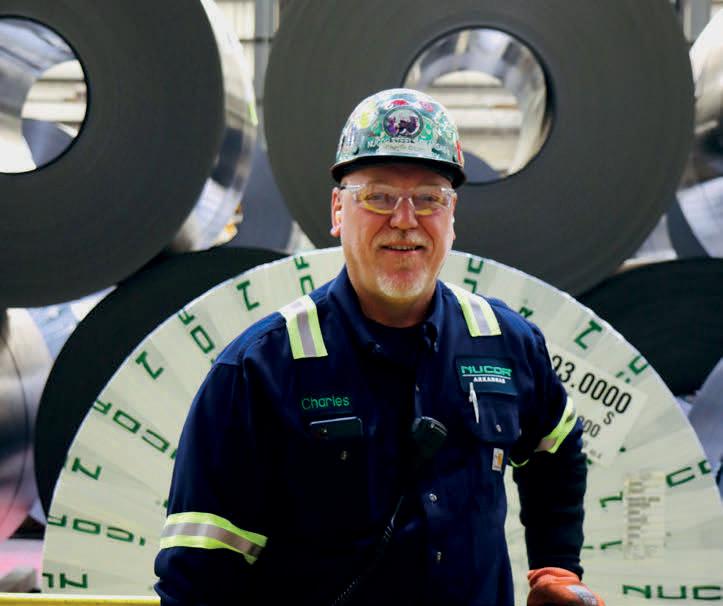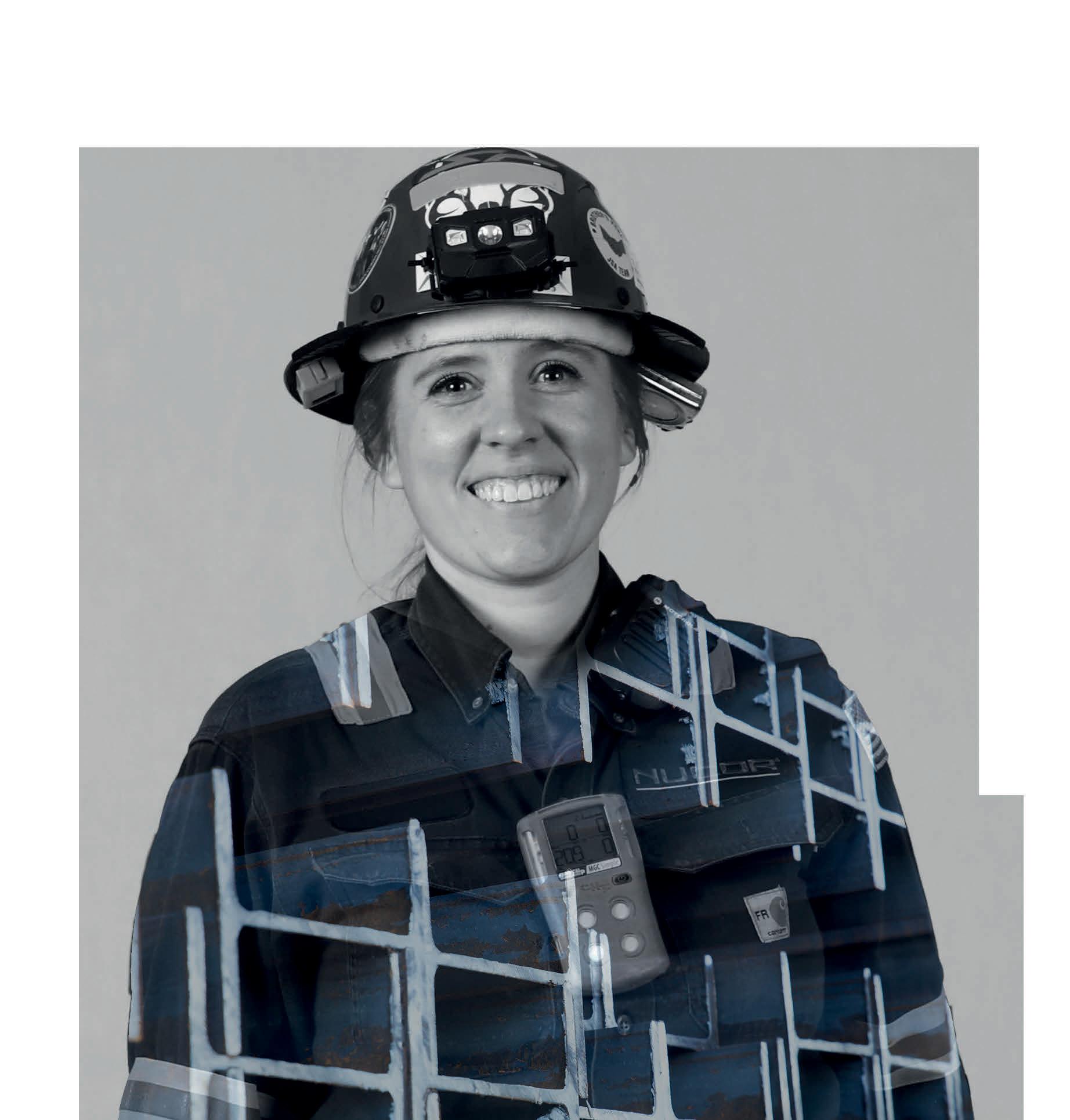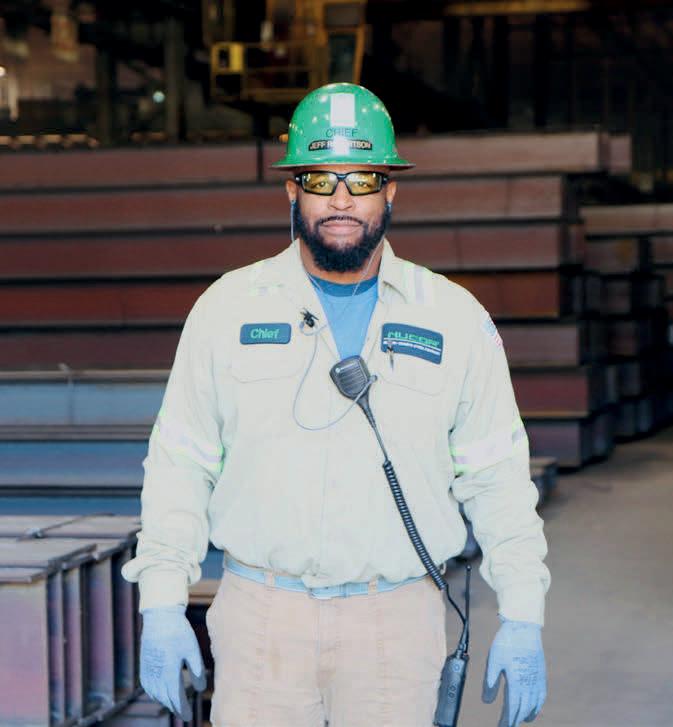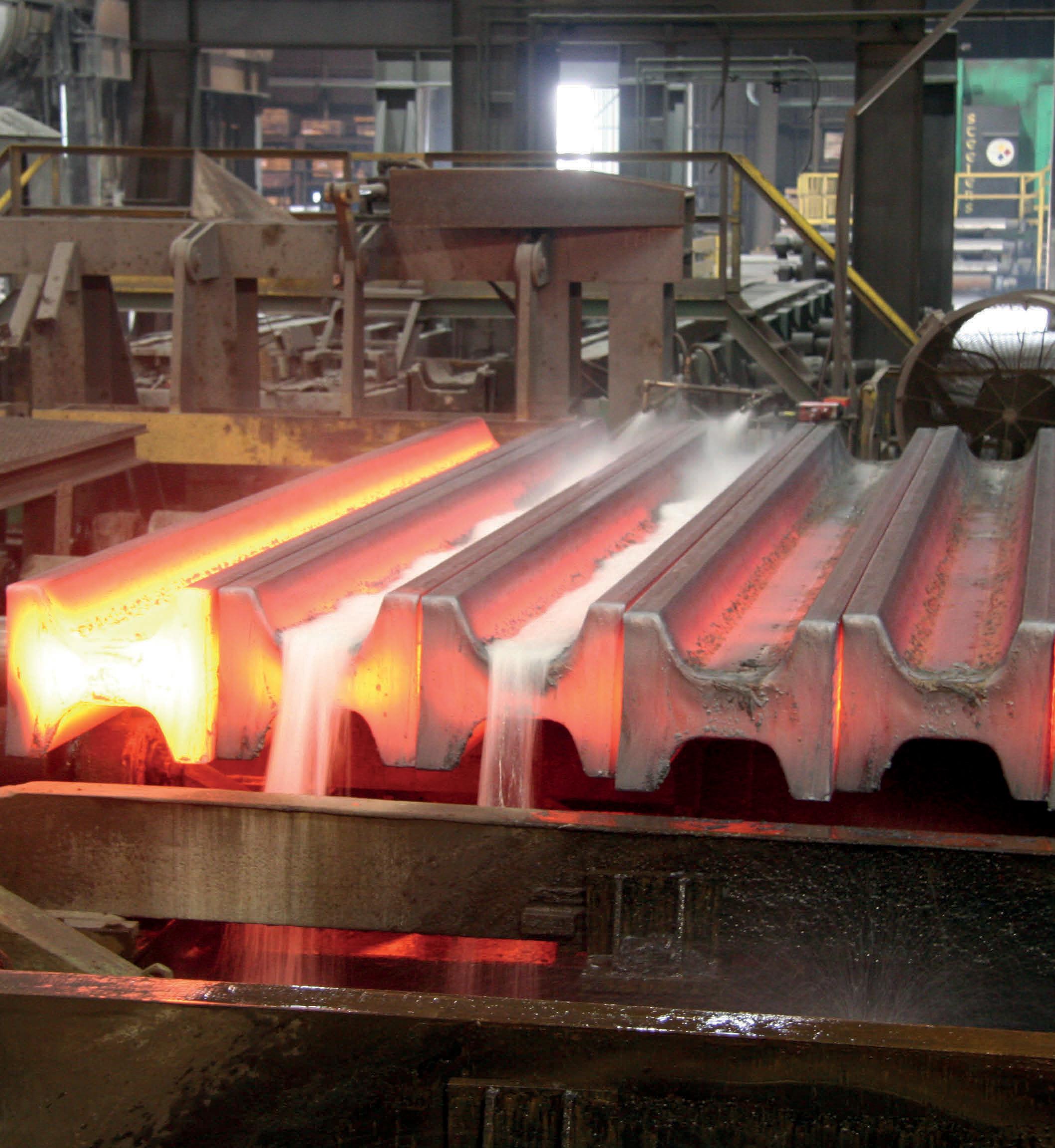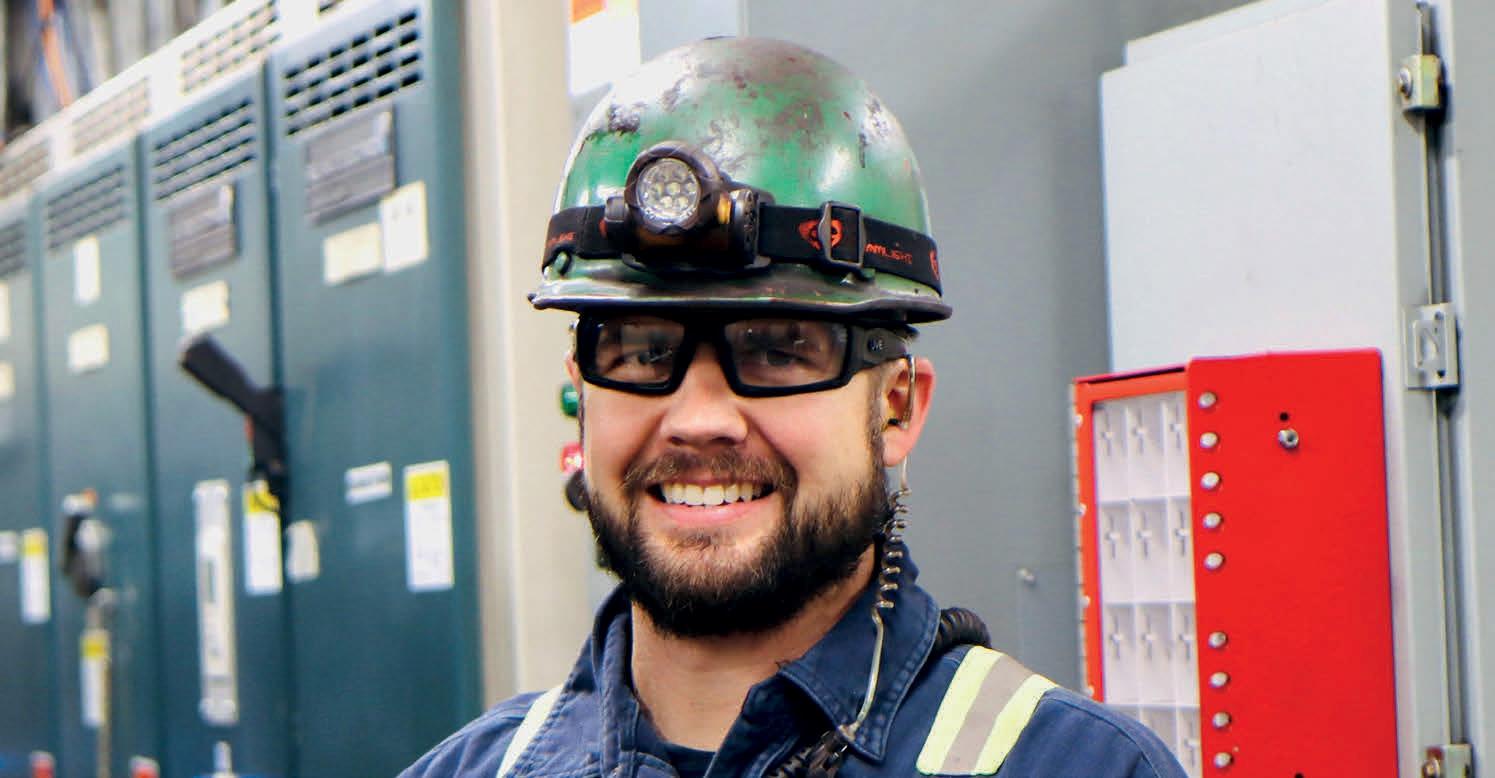4 minute read
I
from BluePrint 2023
Next Article
“Soft skills are things that translate to any job field, whether it’s the lab or working at a bank or working at Walmart,” said Rebecca Burkman, director of environmental affairs for Little Rock Water Reclamation Authority. “We do soft skills-related training for both our hourly staff and our salaried staff, including one on conflict resolution and one on diversity and inclusion.” n addition to job-specific abilities, many hiring managers say soft skills are what separate one employee from another when it comes time for raises and promotions. Soft skills are a category of work and personal attributes that enhance a skill set such as being on time, working well with others and the ability to communicate effectivelyBurkman said technical skills for most entry level positions come down to on-the-job training. But what can’t be taught are the kinds of skills that stem more from an employee’s attitude than their aptitude.
DID YOU KNOW?
“Most people are worried about the technical skills and what’s on their resume,” she said. “But as someone who hires those entry level positions, when I look at interviewing people, I already have their resume in front of me. I’ve already read it, so what I’m looking for in interviews are those soft skills and how well they would fit with the dynamic of the existing team.
The average cost of a technical education is about one-fifth that of a four-year degree. The average cost of a two-year public trade school education is just over $21,400 while the average cost of a four-year public college degree is $109,400. That’s a savings of more than $88,000, and with tuition reimbursement programs offered by many employers, your actual cost could be even less.
Source: explorethetrade.org
REBECCA BURKMAN
Director of Environmental Affairs
Little Rock Water Reclamation Authority
Hometown: North Little Rock
Age: 31
Time with the organization: 5 years
BLUEPRINT: How did you decide to join LRWRA?
REBECCA BURKMAN: I was in college and I got a bachelor’s in biology and then I didn’t really know what to do with that. I started applying at different lab jobs and I saw an advertisement for a lab tech position at a utility in North Carolina. I started working in a lab there and I applied for a job here, back home, because I was trying to move home.
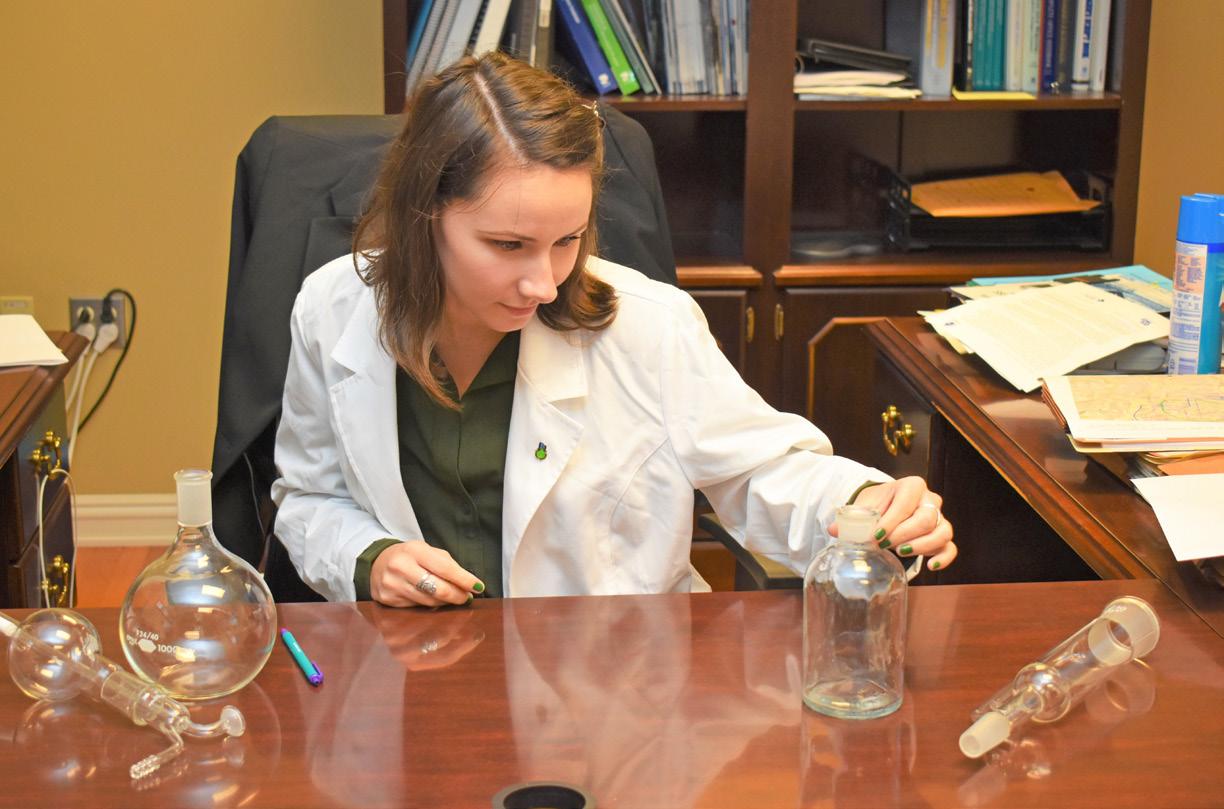
I started at entry level as a lab tech and in five years I went from entry level to executive.
BP: What are the opportunities for people who don’t have a four-year degree, who may have an associate degree or come right out of high school?
RB: Our company has a wide range of different types of jobs. If you like working with your hands, we’ve got a position for that. If you like working with numbers, we’ve got a job for that. We’re very competitive with our pay and we’ve got amazing benefits.
There are people who have worked 30-plus years with the utility because it’s really a good career field for any type of work. Baby boomers are retiring, so a lot of vacancies are going to be coming up and that means a lot of opportunities for young people.
BP: If you could address a room full of young people about what you like most about your career, what would your message be?
RB: I grew up learning about the natural world and it became my passion. That’s why I really love the mission of our company. We take something that is considered waste, we clean it, and we return it back to the environment. I love the mission of what we do, and I love the work environment. It’s full of great people and that’s something that I think is undervalued. It’s hard to put a price tag on working with great people.
DESI HUNTER
Senior Coach/Field Mentor, Entergy
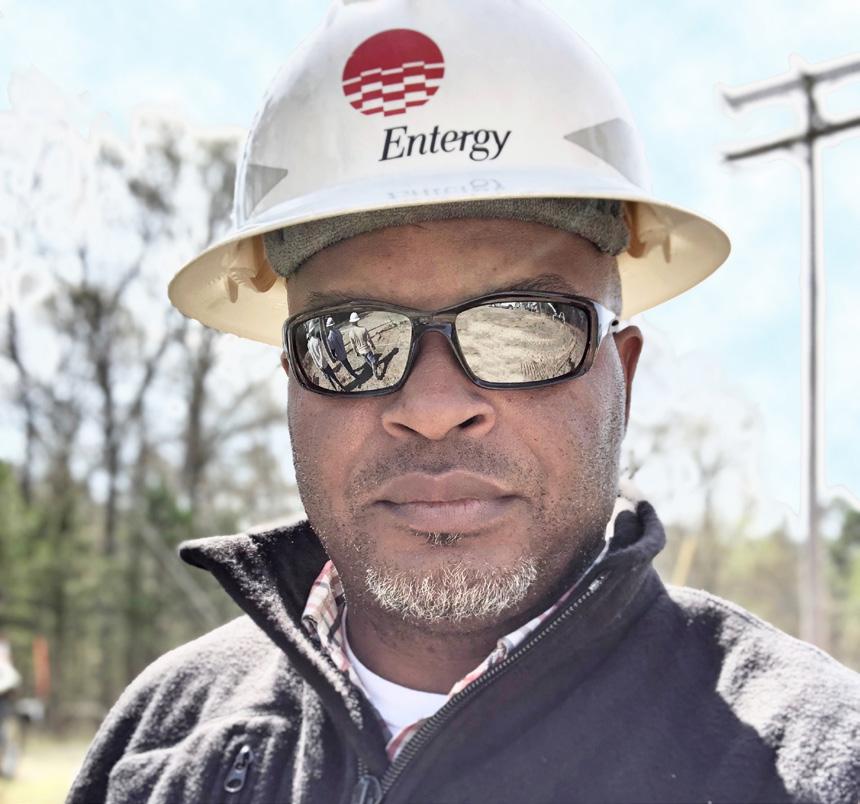
Hometown: Stephens
Age: 51
Years with Entergy: 23
BLUEPRINT: As a designated coach and mentor, why is it still difficult to get kids to consider a skilled career?
DESI HUNTER: When I grew up in the 1980s it was just pounded into your head you have to go to college. I grew up working in my grandfather’s gas station, changing oil and changing flats. I had those skills, but I was told I’ve got to go to college. So I went and it was not my thing. I lasted about three semesters and knew I didn’t want to do that. I enrolled in SAU Tech and got my airframe and powerplant license to work on aircraft.
We’re still forcing kids through college and they get out with a degree in accounting or business where they’re a dime a dozen. I try to tell kids, I’m not knocking a college education, but you can learn a trade like plumbing, welding or electrician, or work as an apprentice for a few years, and do well.
BP: How did you land here at Entergy?
DH: I found out about Entergy from a guy I knew who was looking to get on with the company. The more he talked, the more I thought, “Man, I’d love to do that.” So I went through the interview process and got hired even though I didn’t know anything about electricity.
BP: How did you learn what you needed to know?
DH: Entergy sends you to boot camp in Clinton, Mississippi. They teach you how to climb. They teach you wire sizes and wire connections and how to do CPR and things like that. That’s the basics you learn at boot camp, which is about 12 weeks. The rest is just on-the-job training.
BP: What do young people need to know about success in the working world?
DH: One thing is, they need to look at something like a career. Nowadays, I think kids look for a job and then they’re on to the next thing whenever they get tired of it. I remember when I got this job at Entergy, my parents were so proud. They were like, you have a great job with a great company that will give you a long career. That’s how you need to think of it, long term. That’s the first thing
What I always tell people is the two things you need are attitude and effort. I tell people if you have a good attitude and put forth the effort, you can be taught and trained to do anything you want to do.



